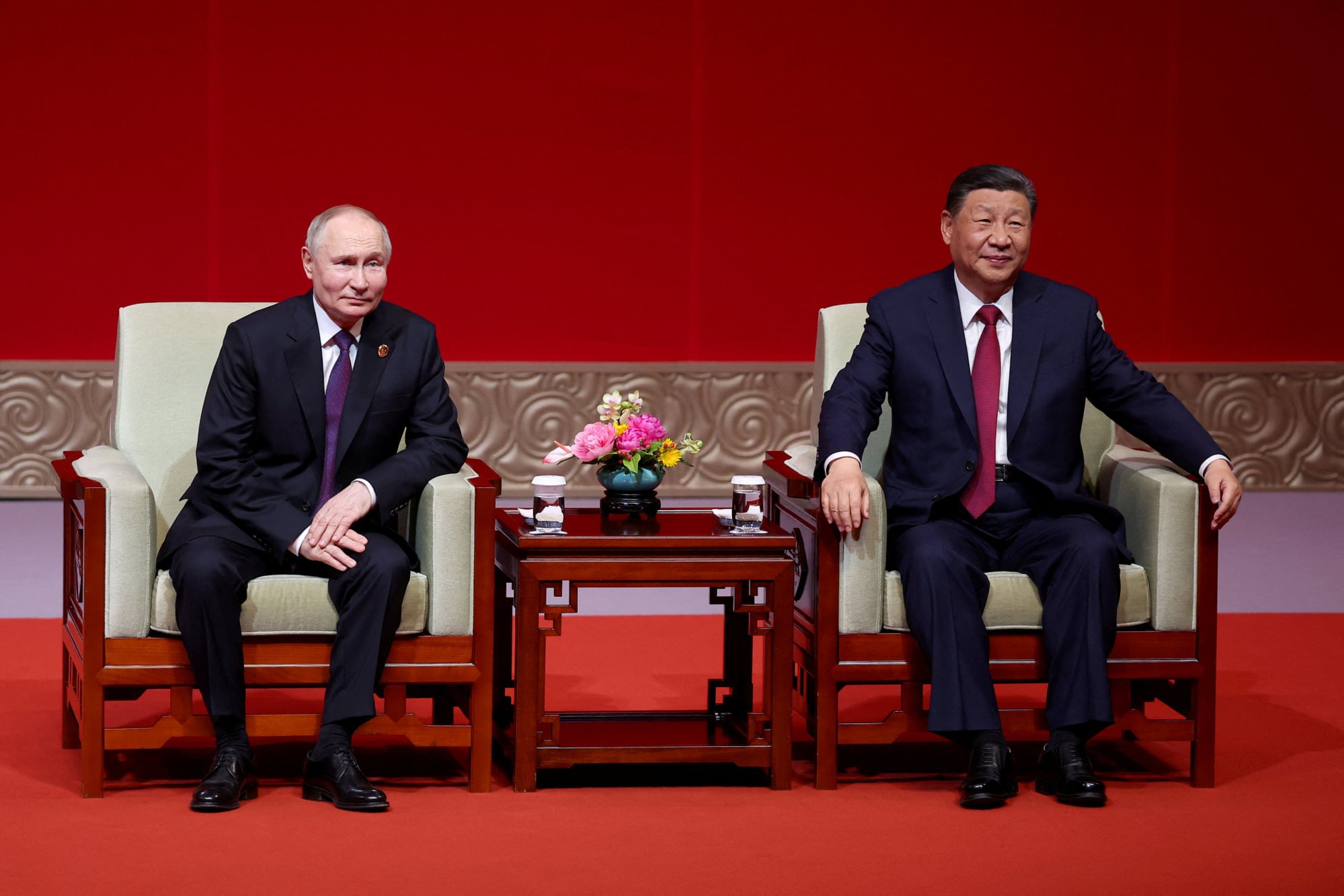
China and Russia vowed on Thursday to build even closer ties in their energy and finance sectors and extract more benefits from their partnership in other areas, underscoring their mutual dependence in the face of Western sanctions.
Both countries plan further cooperation in oil, natural gas, liquefied natural gas, coal, electricity and other fields “according to market principles”, according to a joint communique released after Chinese President Xi Jinping’s meeting with his Russian counterpart Vladimir Putin in Beijing.
The leaders pledged to ensure the stable operation of cross-border infrastructure for unimpeded transport of energy.
Do you have questions about the biggest topics and trends from around the world? Get the answers with SCMP Knowledge, our new platform of curated content with explainers, FAQs, analyses and infographics brought to you by our award-winning team.
Chinese and Russian firms will also seek to implement large energy projects and build cooperation in areas such as renewable energy, hydrogen and carbon markets, the statement added.
Expanding such cooperation will buttress an already solid mutual economic reliance. Last year, record bilateral trade of US$240 billion provided an important lifeline for Russia, which is under blanket sanctions from Western countries since it invaded Ukraine in 2022.
For China, Russia is its largest source of crude oil imports as well as an important destination of Chinese electric vehicles – which are themselves a target of European inquiries and US tariffs.
Maxim Kuznetsov, the chairman of the Russian-Asian Business Council, said that both countries still must work out conditions for key energy projects that remain in prolonged talks, including the signature gas pipeline, Power of Siberia 2.
“This project is crucial for Russian-Chinese energy cooperation but there are many questions that Russian and Chinese parts need to settle first,” he said.
“Negotiations are complicated due to price and project configuration. Also, the question is how much every side needs to invest in this project.”
Kuznetsov noted that there were no signs that the gas pipeline deal would be finalised soon.
To help reduce the impact of Western sanctions, Xi and Putin said they would increase the use of their currencies in bilateral trade, financing and other economic activities and improve financial infrastructure to smooth settlement channels.
The Kremlin said earlier that more than 90 per cent of commercial transactions between China and Russia were already being settled in yuan or roubles.
Both also said they would promote the use of local currency settlement, payment tools and platforms for trade and business among other member nations of the Brics economic association.

As for new areas of cooperation, the communique said China and Russia would increase their efforts in a vast array of industries, in sectors like civil aviation, shipbuilding, automobile and equipment manufacturing, electronics, metallurgy, iron ore mining, chemicals and forestry.
Other realms for cooperation, the statement said, were areas ripe for innovation, including artificial intelligence, software, open source, network and data security, electronic games, radio frequency coordination, vocational education and professional scientific research.
The statement also mentioned services, including e-commerce, digital economy and sustainable development, and secure supply chains.
Both countries said they would also explore opening new shipping routes across the Arctic region.
More from South China Morning Post:
- Will Putin’s China visit help re-energise a dormant pipeline project?
- China, Russia could bypass barriers to buoy business as Western sanctions bite, researchers say
- US tariffs on China: what’s the real impact, and what could happen next?
- Chinese President Xi Jinping to meet Russia’s Vladimir Putin as ‘no limits’ partners mark 75 years of ties
For the latest news from the South China Morning Post download our mobile app. Copyright 2024.








































